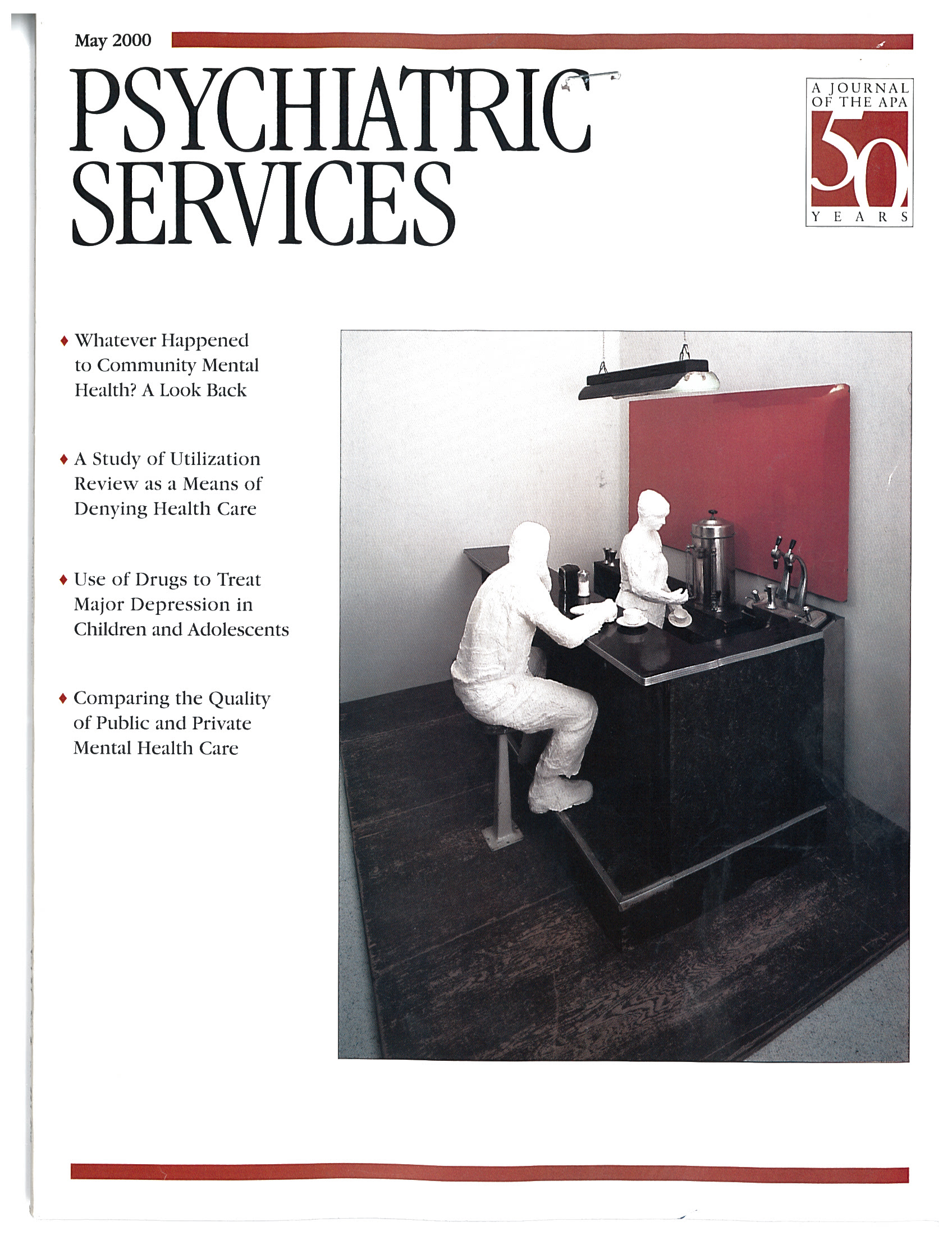Involuntary Hospitalization or Aversive Incarceration?
To the Editor: A 26-year-old man recently diagnosed as having schizophrenia was admitted to my ward at the state hospital. Obviously frightened and a little overwhelmed, he had spent the last two months within the narrow confines of a community-based crisis unit. During the initial evaluation, I asked what he understood about his commitment. Though I had heard it from more than one patient over the years, his response made me wince. "The doctor," he said, "told me this would teach me a lesson about the need to take my medications."
Crisis units, community hospitals, and state institutions have traditionally served as receiving facilities for individuals involuntarily committed for psychiatric reasons. However, public institutions designed to facilitate healing are too commonly portrayed—by clinicians, no less—as places prepared to punish.
On more occasions than I care to count, I have admitted patients to the state hospital whose understanding of the situation was that hospitalization was a form of aversive therapy. They believed they were being detained to be taught a lesson about the seriousness of their mental illness and the consequences of noncompliance. Sometimes these views were distorted by their psychoses and the absence of insight. Sadly, at other times their understanding was an accurate portrayal of the committing physician's intentions.
When the referring psychiatrists were contacted, many of them readily expressed less than therapeutic motives for initiating the commitment process. "I finally called his bluff," one proclaimed, describing the crises-driven admissions of a borderline patient. Another, clearly exasperated with a dually diagnosed client, stated, "He needed to get the message that his behavior won't be tolerated." There was the one psychiatrist who simply admitted, "We really needed a break from him here at the [community mental health] center."
I am not railing against the evils of involuntary psychiatric hospitalization. I have worked too long with homeless mentally ill people and others ravaged by brain disorders to argue against the need for hospitalizing those in desperate need of safety and treatment. Rather, my views on involuntary commitment have been shaped by years of serving as the receiving, rather than the referring, psychiatrist. I am the one who has to establish a new therapeutic alliance, work through the mistrust, and create a relationship with the individual before treatment can begin. Not infrequently, so much damage has been done before hospitalization that all future collaboration is seemingly doomed.
Aversive incarceration, in the guise of involuntary hospitalization, may be the means to "teach a lesson" to our most difficult clients, but it will never foster the healing relationship our patients need. And we, patients and physicians alike, will suffer from that lost opportunity.
Dr. Christensen is a senior psychiatrist at Northeast Florida State Hospital in MacClenny, Florida.



